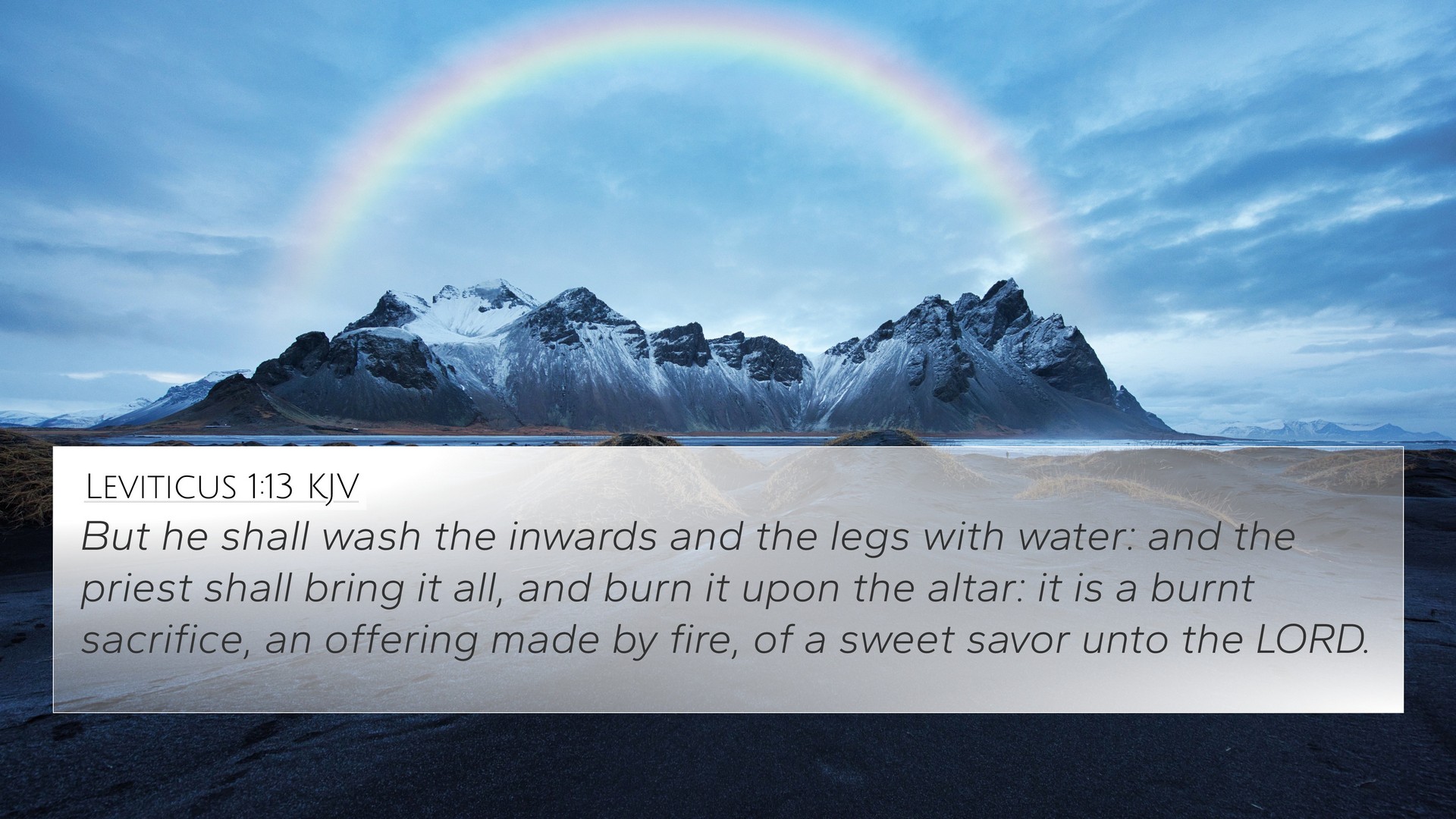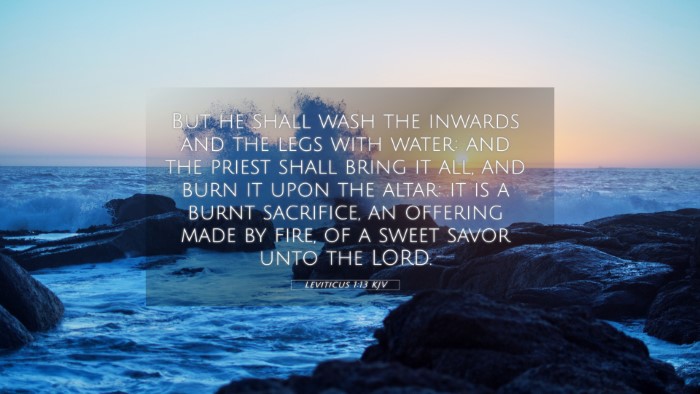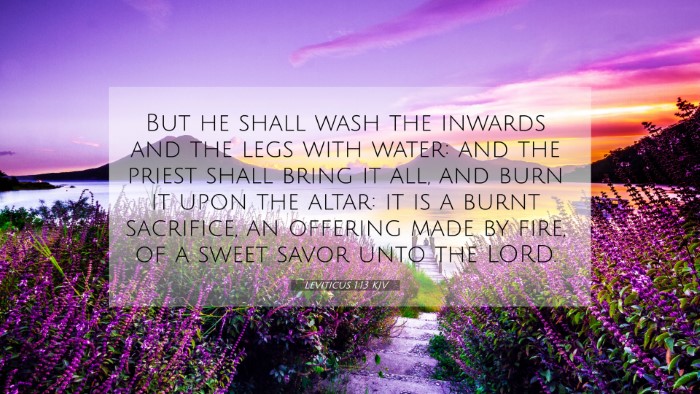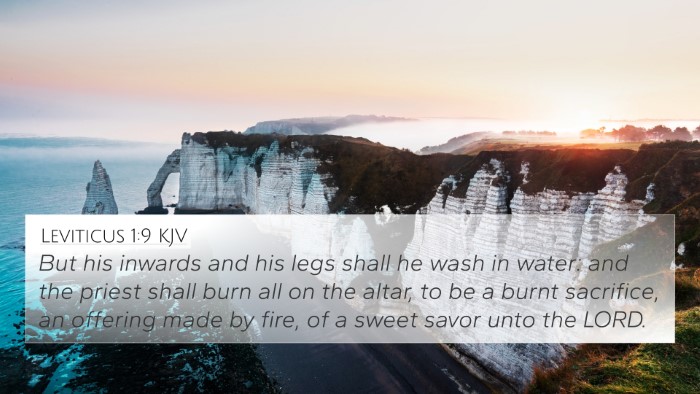Understanding Leviticus 1:13
Leviticus 1:13 states: "But the entrails and the legs shall be washed with water: and the priest shall burn all on the altar, to be a burnt sacrifice, an offering made by fire, of a sweet savour unto the LORD." This verse details the procedures for offering a sacrifice, and it holds significant theological and cultural implications within the context of ancient Israelite worship.
Verse Meaning and Interpretation
The instructions provided in Leviticus reflect the holiness required in approaching God through sacrifices. The emphasis on the washing of the entrails and legs signifies the necessity of purification before an offering can be deemed acceptable.
Theological Insights
This verse serves as a guideline for ritual cleanliness and the sacredness of offerings:
- Matthew Henry comments on the element of purity, suggesting that anything offered to God must be not only whole but also clean in every way.
- Albert Barnes provides insight into the symbolism of the various parts of the offering, noting that the removal of impurities shows the distance God maintains from sin.
- Adam Clarke adds that the actions taken by the priest highlight a deeper understanding of the sacrificial system, which ultimately points towards the atonement found in Christ.
Connections with Other Scripture
Leviticus 1:13 is rich with connections to both Old and New Testament scriptures. Here are some pertinent Bible verse cross-references that deepen the understanding:
- Exodus 29:14 - Discusses the burning of the flesh outside of the camp, reinforcing the idea of purification.
- Leviticus 16:27 - Relates to the atonement sacrifice and the concept of removing impurities.
- Hebrews 9:22 - Shows that without the shedding of blood, there is no remission of sins, relating to the need for sacrificial offerings.
- Romans 12:1 - Calls believers to present their bodies as a living sacrifice, drawing parallels to the Old Testament sacrifices.
- 1 Peter 2:5 - Describes believers as living stones being built into a spiritual house, reflecting the nature of sacrifices.
- John 1:29 - Highlights Jesus as the Lamb of God, connecting the sacrificial system of the Old Testament with Christ's ultimate sacrifice.
- Colossians 1:20 - Discusses reconciliation through the blood of His cross, aligning with the themes of sacrifice in Leviticus.
Thematic Bible Verse Connections
The connections become clearer when one considers the thematic Bible verse parallels:
- Isaiah 53:6 - Discusses how the Lord laid upon Him the iniquity of us all, further expanding the understanding of sacrificial atonement.
- Hebrews 10:4 - Emphasizes that the blood of bulls and goats cannot take away sins, hinting at the inadequacy of the Levitical system in the face of Christ's ultimate sacrifice.
Conclusion and Reflection
Through Leviticus 1:13, we see a foundational piece of the sacrificial system which finds its culmination in Christ. The directive for washing signifies deeper spiritual truths, reminding us how we ought to approach God, as well as reflecting on the transformative power of Christ's sacrifice.
Tools for Bible Cross-Referencing
Engaging with scripture often requires tools for better understanding, such as:
- Bible concordance
- Bible cross-reference guide
- Cross-reference Bible study materials
- Bible chain references
- Comprehensive Bible cross-reference materials
Final Thoughts
Understanding the connections in the Bible is key to grasping the complexity and richness of God's Word. Utilizing resources and methods for cross-referencing Biblical texts can enhance your study and deepen your faith.



